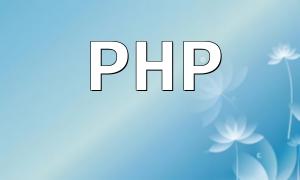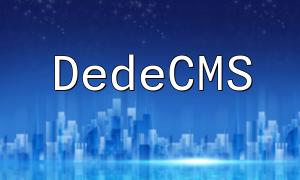In today’s e-commerce industry, performance and scalability are key factors in determining the success of an e-commerce platform. With the increasing demands of consumers and intensifying market competition, optimizing the technical architecture of an e-commerce platform becomes crucial. PHP frameworks, as a popular web development tool, are widely chosen for their flexibility and ease of use. So, how can PHP frameworks be leveraged to improve the performance and scalability of e-commerce platforms? This article will analyze this issue from multiple perspectives.
Before deciding to use a PHP framework to develop an e-commerce platform, understanding its advantages is essential. Popular PHP frameworks such as Laravel and Symfony provide a wealth of built-in features that help developers quickly build maintainable and scalable applications.
1. Rapid Development: PHP frameworks offer a rich set of tools and libraries, significantly speeding up the development process.
2. Community Support: Most PHP frameworks have large community support, allowing developers to quickly find solutions and comprehensive documentation.
3. Security: PHP frameworks come with built-in security features to help developers effectively guard against common security issues such as SQL injection and cross-site scripting (XSS) attacks.
The database is the core of any e-commerce platform, and optimizing query performance is crucial for improving overall platform performance. Using an efficient data processing approach can significantly boost performance.
Many PHP frameworks offer Object-Relational Mapping (ORM) tools that make data manipulation simpler and more efficient. For instance, Laravel’s Eloquent ORM makes managing data easy:
// Query all products
$products = Product::all();
ORM reduces direct SQL queries, allowing developers to better manage and optimize data operations.
For large-scale e-commerce platforms, proper database indexing can speed up data retrieval. Additionally, partitioning large tables is an effective way to reduce query latency.
On e-commerce platforms, page load speed directly affects user experience. PHP frameworks can help improve page load times using several optimization techniques.
Most PHP frameworks come with built-in caching mechanisms that reduce database queries, thereby speeding up page loading times. For example, Laravel’s caching system can store query results:
// Cache example
$products = Cache::remember('products', 60, function() {
return Product::all();
});
By caching, developers can reduce the load on the database and provide users with faster responses.
To further improve page load speeds, using a CDN to distribute static content such as images, CSS, and JavaScript files is a smart choice. PHP frameworks typically integrate well with CDN services, helping to speed up resource loading.
As an e-commerce platform grows, user and data volume increases. In such cases, the platform needs to support horizontal scaling, and PHP frameworks provide various solutions to address this challenge.
Breaking the e-commerce platform into multiple independent microservices, each responsible for a specific function, ensures that if one service fails, the overall system continues to run smoothly. Laravel makes it easy to implement a microservices architecture and use an API gateway to manage service calls.
By using load balancing, user requests can be distributed across multiple servers, improving system availability and reliability. PHP frameworks can integrate with various load balancing solutions, making it easy to scale server resources as demand increases.
By effectively utilizing the various features of PHP frameworks, e-commerce platforms can achieve significant improvements in performance and scalability. From optimizing database performance and improving page load speed to supporting horizontal scaling, developers can build efficient and sustainable e-commerce platforms. In a fast-growing and competitive e-commerce market, platforms with excellent performance and scalability will have a significant edge in the industry.









